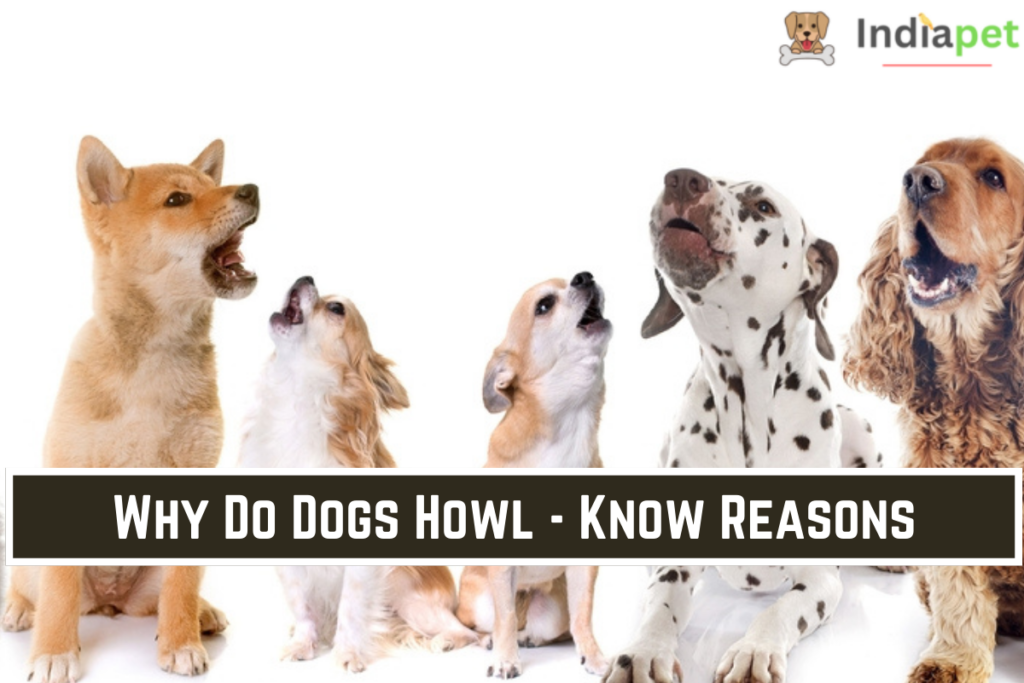Dogs are fascinating creatures, and their behaviors often leave us wondering about their inner workings. Why Do Dogs Howl – Know Reasons One such behavior that intrigues many dog owners is howling. Have you ever wondered why your furry friend suddenly starts howling? In this blog post, Why Do Dogs Howl – Know Reasons we’ll explore the reasons behind this unique canine behavior and help you better understand your dog’s communication.
Also read : 5 Furry Facts About Labrador Retrievers You Probably Didn’t Know

__________________________________________________________________________________
Instinctual Behavior
Howling is an instinctual behavior in dogs that has its roots in their wild ancestors, the wolves. In the wild, wolves howl to communicate with their pack members over long distances. This behavior serves several purposes, such as:
-
Maintaining contact: Wolves howl to keep in touch with their pack members, especially when they are separated or hunting in different areas.
-
Defending territory: Howling is used to warn other packs or predators that the territory is occupied and claimed by a particular wolf pack.
-
Rallying the pack: When a wolf is separated from its pack, it may howl to attract the attention of its pack members and guide them back together.
While domestic dogs have evolved and adapted to live with humans, they still retain some of these instinctual behaviors, including howling.
Also read : Why Dogs Enjoy Car Rides? – Know Reasons
__________________________________________________________________________________
Responding to Stimuli
Dogs may howl in response to various stimuli in their environment. Some common triggers for howling include:
-
High-pitched sounds: Dogs have a keen sense of hearing and can detect high-pitched sounds that humans may not be able to hear, such as sirens, alarms, or musical instruments.
-
Boredom or loneliness: If a dog is left alone for extended periods or doesn’t receive enough mental and physical stimulation, it may start howling out of boredom or loneliness.
-
Separation anxiety: Some dogs develop separation anxiety when their owners leave them alone. Howling is one of the ways they express their distress and anxiety.
-
Attention-seeking: Dogs may howl to get their owners’ attention, especially if they have learned that howling leads to getting petted, played with, or fed.
Also read : Why Some Dogs Are Afraid Of Stairs & Ways to Help them Overcome it

__________________________________________________________________________________
Breed Characteristics
Certain dog breeds are more prone to howling than others. For example, hounds, such as beagles and bloodhounds, are known for their tendency to howl. These breeds were originally bred for hunting and tracking, and their howling was used to alert hunters to their location during the hunt.
Other breeds, such as Siberian huskies and malamutes, also have a strong tendency to howl. These breeds were developed in the Arctic regions and were used for sledding and hauling. Howling was an essential means of communication in their harsh environments.
Also read : Why is Breed-Specific Dog Food a Better Option than Standard Dog Food?
__________________________________________________________________________________
Health Concerns
In some cases, excessive or unusual howling may be a sign of an underlying health issue. If your dog’s howling behavior changes suddenly or becomes excessive, it’s essential to consult with your veterinarian to rule out any medical problems, such as:
-
Pain or discomfort: Dogs may howl if they are experiencing pain or discomfort due to an injury or illness.
-
Cognitive dysfunction: As dogs age, they may develop cognitive dysfunction, similar to Alzheimer’s disease in humans. Howling can be one of the symptoms of this condition.
-
Hearing loss: Dogs with hearing loss may howl more frequently as they try to compensate for their diminished sense of hearing.

Addressing Excessive Howling
If your dog’s howling becomes excessive or disruptive, there are several ways to address the issue:
Why Do Dogs Howl – Know Reasons
-
Provide adequate exercise and mental stimulation: Ensure that your dog gets enough physical and mental exercise to prevent boredom and reduce the likelihood of excessive howling.
-
Avoid reinforcing the behavior: If your dog howls for attention, avoid giving in to their demands, as this can reinforce the behavior.
-
Desensitize your dog to triggers: If your dog howls in response to specific stimuli, such as sirens or musical instruments, gradually expose them to these sounds at a low volume and gradually increase the volume over time to desensitize them.
-
Consult with a professional: If the excessive howling persists or is accompanied by other concerning behaviors, consult with a veterinarian or a certified animal behaviorist for professional guidance.
people also read : Why Do Dogs Sleep So Much ?
__________________________________________________________________________________
conclusion
In conclusion, dogs howl for various reasons, from instinctual behavior to responding to stimuli in their environment. While some degree of howling is normal, excessive or unusual howling may require attention and intervention. By understanding the reasons behind your dog’s howling and addressing any underlying issues, you can help create a harmonious and happy relationship with your furry friend.


